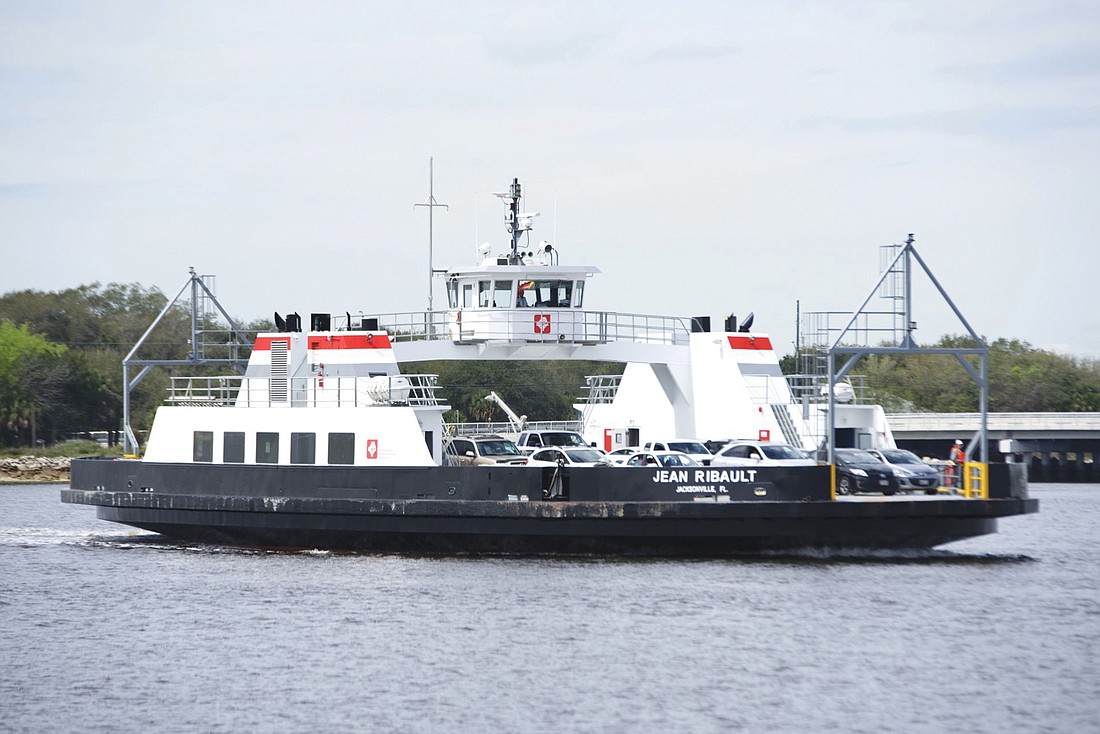
Move over, Jean Ribault. You’re about to get a sister ship.
The Jacksonville Transportation Authority announced Sept. 16 that it had received a $15.6 million grant from the U.S. Department of Transportation to purchase a new diesel hybrid-electric ferry that will join the Jean Ribault in ferrying passengers across the St. Johns River.
A JTA release said the grant, which it secured in partnership with Northeast Florida U.S. congressional representatives, would allow for uninterrupted ferry service at times when one of the vessels undergoes maintenance and repairs. Currently, JTA has to suspend service for several weeks annually while the Jean Ribault is out of service.

“The St. Johns River Ferry is an iconic mode of transportation for Northeast Florida, providing important connectivity for the Ft. George Island and Mayport areas,” JTA CEO Nat Ford said. “This investment by the U.S. Department of Transportation toward an additional, environmentally sustainable vessel means we can provide more reliable and efficient mobility to our community.”
In the release, Jacksonville Mayor Donna Deegan credited relationships between her office and the Biden-Harris administration for helping land the grant.
“The new hybrid-fuel ferry vessel will increase connectivity, sustainability, and economic competitiveness for the historic communities of Mayport Village and Fort George,” she said.
Rep. John Rutherford, R-Florida, said the new ferry would end “unnecessary delays and closures” for regional residents who rely on the service.
“That’s why I was proud to help secure a grant from the Federal Transit Administration for an additional ferry to prevent disruptions in this essential service and to ensure our piece of Florida’s iconic thoroughfare remains connected,” he said.
Rep. Aaron Bean, R-Florida, also was quoted in the release for having helped secure the grant.
JTA said the ferry has carried more than 391,000 riders in fiscal year 2024.
The JTA, which took over operation of the ferry from the city in 2016, has secured more than $35 million in discretionary grants, to which local matching funds have been added to provide $55 million in capital upgrades to the ferry.